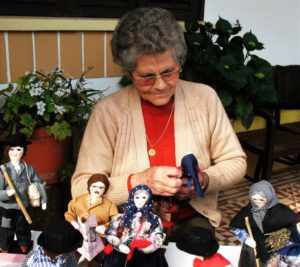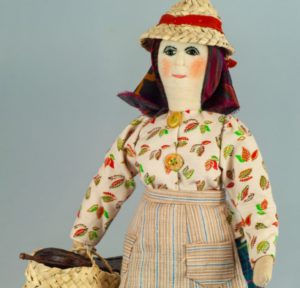Rag Dolls
A rag doll is a simple and rudimentary form of doll, in which the body parts are made of fabric, and the stuffing can be made of various materials, ranging from straw, cotton pads or just cloth. In Portugal, the traditional production of the dolls is very rich and diversified, as it is extensive and has been influenced by people’s personal history. Rag dolls are considered the symbol of portuguese culture, where they are part of many women’s lives, as they made their toys.
The cloth doll is a social object where we perceive the multiple relationships, it is appreciated by children because it helps to bring the children’s universe closer to the history of humanity, with its rituals, folklore, religion and with the knowledge of its community. The folk dolls represent, together with the legends, the Algarve’s regional culture, which reflects the domestic and traditional industry of our country.
Cloth dolls can be useful: in some cases, they are made that way so that pins and needles are stuck, so that they do not get lost, in the sewing baskets.
Dona Filipa, born in Querença, is distinguished, among other aspects, by the production of rag dolls representing the Algarve’s rural world, where each figure alludes to the tasks performed by the people of the interior, composing true pieces of local ethnography that constitute a postcard of Querença and the county itself. The Loulé Chamber, through this project, “[…] intends to support training in the area of traditional arts and crafts, contributing to its revitalization, as well as to the dynamism of new approaches to intangible heritage […] The generational renewal of knowledge whose origin is lost in time, the course aims to provide participants with knowledge that will allow them to master the materials, processes and techniques, as well as get in touch with the stories and framework behind the making of each doll […]”, explains the municipality of Loulé.



